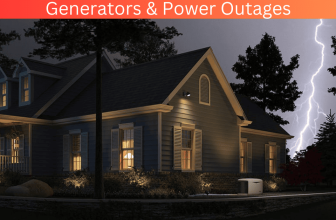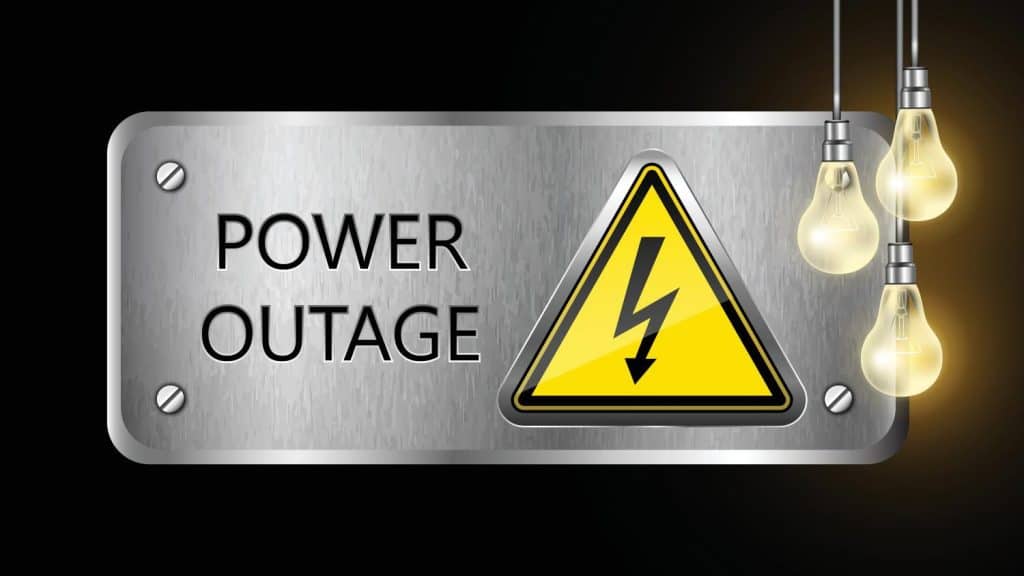
Portable generators have become an essential tool for households impacted by frequent power outages. However selecting the right generator amidst various confusing options requires an understanding of some critical factors beforehand like wattage output capacity or preferred fuel types like gasoline or propane among others.
This article aims at guiding homeowners who face these tough but common decisions by providing them with accurate information on how they can select reliable portable generators suitable for their needs during power outages effectively.
Regardless of whether it’s low budget models or costly ones our guide will walk you through the entire selection process.
Wattage Requirements: Calculating Your Home’s Essential Power Needs During Power Outages

When choosing a portable generator for an emergency blackout situation or power outages at home or office premises; consider calculating your energy demands versus available Wattage as this remains an essential consideration.
The first step involves making clear notes based on what appliances or electronic gadgets will need electricity supply during such unexpected events; these may include refrigerators, freezers, sump pumps among others which are usually high consumers when it comes to energy usage versus low consuming ones such as light bulbs or television sets.
By tabulating these power requirements upfront, it will facilitate procuring a generator that meets or exceeds all requirements to avoid overtaxing your generator and damaging both the appliances and generator.
Fuel Type: Weighing The Pros And Cons Of Gasoline, Diesel, And Propane Generators
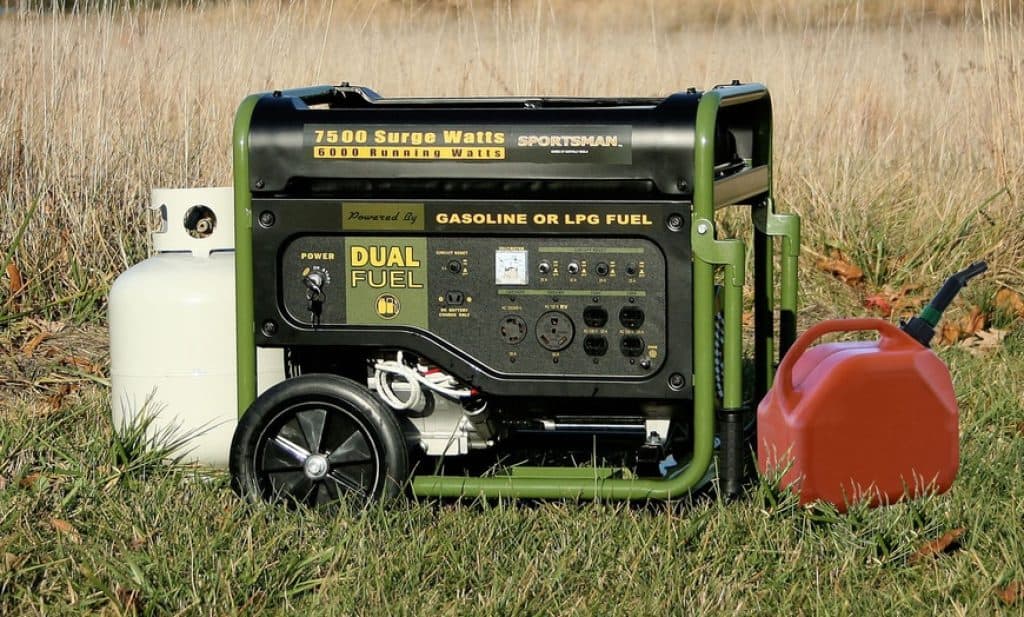
When it comes to portable generators fuel type should be one of your top considerations. Gasoline, diesel, and propane all have their own unique advantages and disadvantages that you need to weigh carefully before making a decision. Gasoline generators tend to be the cheapest option available – but they’re also generally louder than other types and produce higher emissions levels.
Diesel generators are much quieter and more fuel efficient than gasoline models but they can be costly and challenging find fueling options on the go. Propane powered generators offer excellent fuel economy with low noise pollution levels plus smaller emissions profiles than gasoline options – however these benefits come at a cost: They tend to cost more upfront compared against gas powered models.
Storage of propane tanks is another issue that needs consideration due simply because additional space & safety equipment required mandates this. Determining which generator type is right for you involves careful analysis of each options strengths and weaknesses.
Taking sufficient time to evaluate your requirements beforehand will ultimately result in the most effective choice.
Run Time And Fuel Capacity: Ensuring Sufficient Operation Time For Prolonged Power Outages

Selecting the right portable generator for power outages necessitates careful deliberation over specific features – namely the type of fuel used. Depending on individual circumstances and needs, gasoline, diesel or propane generators must be evaluated comparatively for their distinctive merits and demerits.
Beyond considering fuel types alone run time and fuel capacity are both crucial components impacting overall performance during protracted power outages.
Run time delineates the duration during which generators continue operating up until their designated reserve reach depletion levels – governed largely by engine size determining energy production levels.
Bigger engines typically extend energy periods longer but consume greater amounts of gas while emitting higher noise volumes than smaller counterparts.
Fuel capacity measures how much gas can be held within any particular tank; selecting a generator with enough storage space ought to be prioritized in order to avoid potentially frequent refueling duties when prolonged power outages occur.
Fuel tanks differ widely in their sizes- some even permit changes between gasoline or propane varieties – providing added flexibility depending upon specific demands.
Be prepared for lengthy power outages by selecting a generator that offers ample fuel capacity and run time to sustain your necessities. Prioritizing research ahead of time will guarantee that whether it be for home or business use the emergency backup plan will be executed seamlessly with an appropriate generator decision.
Starting Mechanism: Comparing Manual, Electric, And Remote Start Options For Ease Of Use
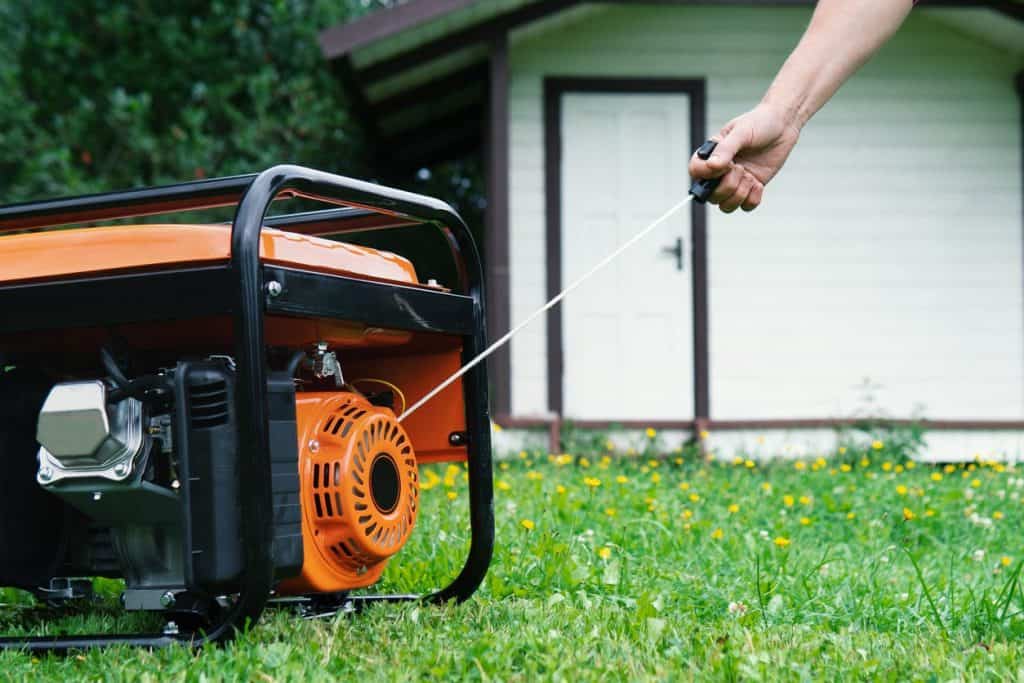
If you’re shopping for a portable generator for power outages or emergency situations, be sure not to overlook the importance of its starting mechanism. You’ll have three options for getting started in a hurry: manual start, electric start, and remote start—with each offering unique benefits and drawbacks depending on your specific needs.
Manual starting with a pull cord is often the most affordable method and doesn’t require any additional accessories or batteries.
However, it can place physical demands on users that may be too much if they lack significant upper body strength. Electric starters are easy to use with just a push of a button getting things up and running quickly. However, keep in mind that they do require an external battery that requires periodic maintenance like cleaning and recharging. Remote starting is arguably the most convenient method since it allows users to avoid going outside or making manual connections.
Still this ease of use luxury comes at a higher cost than traditional manual or electric startup methods. Before making your final decision regarding which generator will work best for you during power outages, carefully consider how each mechanisms physical demands, maintenance requirements and cost will impact your use over time. Portable generators offer great backup power options but require careful consideration when it comes to selecting a starting mechanism.
For those who value easy operation over all else an electric start may seem like an obvious choice despite its higher cost due to added accessories like remotes and wiring kits. However, budget minded users may prefer alternative options that require more effort but less expense.
Inverter Technology: Preserving Sensitive Electronics With Clean, Steady Power Output
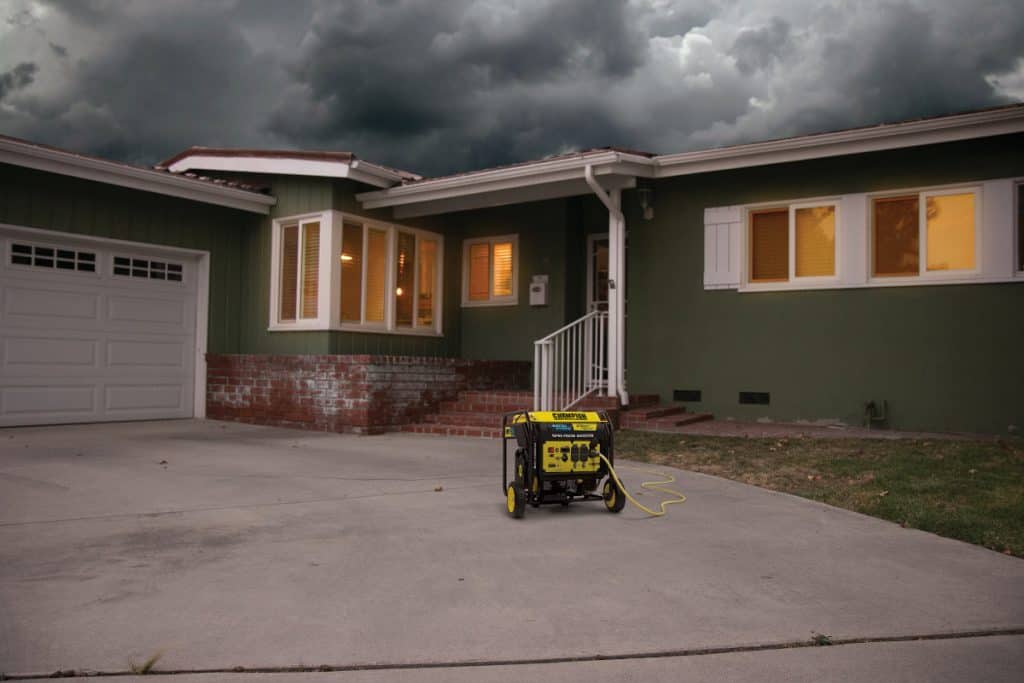
Choosing the best electricity production method is vital once you’ve determined which starting mechanism suits your needs best.
For those who want guaranteed protection of their sensitive electronic devices during power outages or emergencies opting for an inverter generator is highly recommended. These machines ensure that pure and smooth energy flow powers up appliances without inflicting damage to them.
With traditional portable generators being notoriously noisy and erratic with their energy production rate dependent on engine speed fluctuations those seeking peace might prefer quieter and more stable options like an inverter model instead.
Fuel economy becomes another essential factor when selecting among different types of inverters available; this feature ensures a longer runtime with less refilling required when using them over extended periods sufficiently.
When shopping around for these types of generators take into account not only their wattage capacity but also their noise levels – both matters significantly since they determine how much power output will suffice various applications while minimizing annoyance due to environmental factors like disturbances caused by loud machinery. Look for those models with multiple outlets to maximize the number of plugged in devices simultaneously.
It is important to research the various safety features available before investing in a portable generator – this can help prevent dangerous situations from occurring down the line.
For instance, consider opting for models with overload protection or low oil shutoff mechanisms built-in. This will give you peace of mind while using it. Picking out an appropriate option doesn’t have to feel overwhelming; simply assess things like starting mechanisms or inverter technology (if needed) based on your unique requirements and budget constraints – then choose accordingly! With this in mind you’ll undoubtedly make an informed decision that meets all your needs.
Portability And Storage: Identifying The Ideal Size And Weight For Easy Maneuverability And Storage
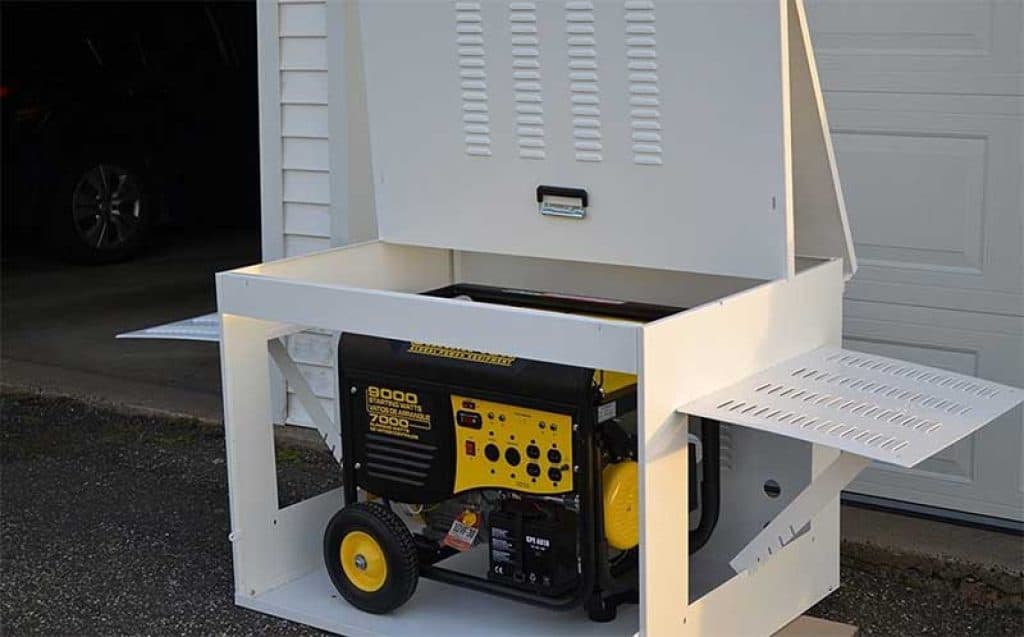
Picking out a reliable portable generator useful during power outages might seem like a simple task – but don’t be fooled. Portability and storage are two fundamental aspects you must consider when making this decision.
The weight and size of your preferred generator are key factors that determine its maneuverability and versatility; especially considering how much energy you require. Finding generators with varied output wattage levels can allow for ideal trade off between power requirements whilst ensuring they’re manageable to move around.
While larger models offer more powerful service options the added weight may create problems as opposed to lighter small sized options that might lack punchiness when running certain appliances. In addition, selecting models with foldable handles or wheels may increase ease of storage if space is at a premium- alternatively, going for smaller models without compromising on energy capacity also offers efficient solutions.
Whatever choice you make regarding your preferred portable generator type for power outages, remember to check if it meets all requirements whilst also being manageable enough to transport or store after use. Selecting a generator for your home or business requires thoughtful assessment of different aspects such as reliability and performance.
By taking these considerations into account before making a decision you can be confident that the one you choose will deliver consistent and trustworthy power whenever required.
Noise Level: Maintaining Peace And Quiet With Low-Decibel Generators
Power Rationing due either climatic interferences or grid upgrades have become inevitable incidents that homeowners face from time to time. Therefore, choosing the right backup equipment is essential especially concerning their decibels rating levels which often disturb peace & quiet all around neighborhoods! But thanks to technological innovation we are now able to enjoy much quieter generation processes by purchasing efficient devices!
Typically speaking, when searching for low noise generating devices checking their decibels ratings is useful in making informed decisions.
Generally, portable models rated between 50-65dB provide peace of mind and a sound sleep while those above 70dB cause more disturbance! Additionally other factors such as size, fuel type, output power among others should also be taken into account whilst purchasing any generator!
In conclusion, it is essential to invest in reliable portable generators that provide non-disruptive energy solutions during prolonged power outages or grid maintenance work. By considering all options carefully before selecting the best suitable model for the home or office, one can attain optimal efficiency without sacrificing on peaceful ambiance and tranquility.
Safety Features: Protecting Your Home And Appliances From Overloads, Overheating, And Emissions
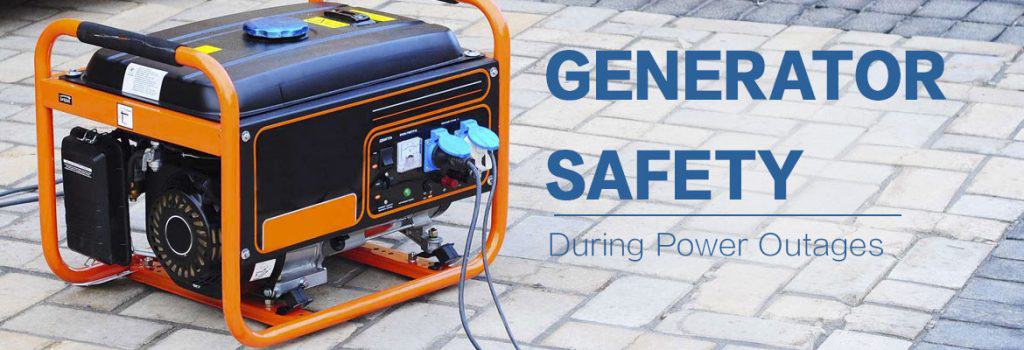
Investing in a portable generator for power outages requires careful consideration of safety measures and fuel efficiency. While considering the variety of options available on the market today, prioritize units designed explicitly to protect your home and appliances from possible dangers like overloads, overheating or toxic emissions.
Choosing models equipped with built-in circuit breakers is essential because it immediately detects any electrical issues before they escalate further. Once unplugged from the grid source automatically shuts them down avoiding any further harm whatsoever.
Internal temperature regulators are also vital components found on models that prevent generators from overheating- preventing fires while ensuring they function optimally throughout their lifespan!
While sorting through different types of fuels like gasoline or propane preferred by generators- check access availability rates around you before deciding which one suits your needs best.
Ensure that any model purchased adheres to federal emission standards as this helps reduce air pollution while in operation. Moreover, make sure that you consider units equipped with fuel gauges or run time meters for monitoring the amount of fuel used over time!
When deciding on what type of portable generator to get as backup in case of power outages, it’s movability and storage options must be considered too. It’s imperative to go for one with portability features such as built-in handles or wheels so transporting it becomes stress-free even by one person alone. And always check first if it’s size would fit in any limited storage space before making an investment decision since this is equally important too .
By doing this assessments ,you can ensure getting your money’s worth from purchasing only a reliable portable generator suited as backup for power outages.
Maintenance And Reliability: Selecting A Generator With Minimal Maintenance Needs And A Track Record Of Dependability
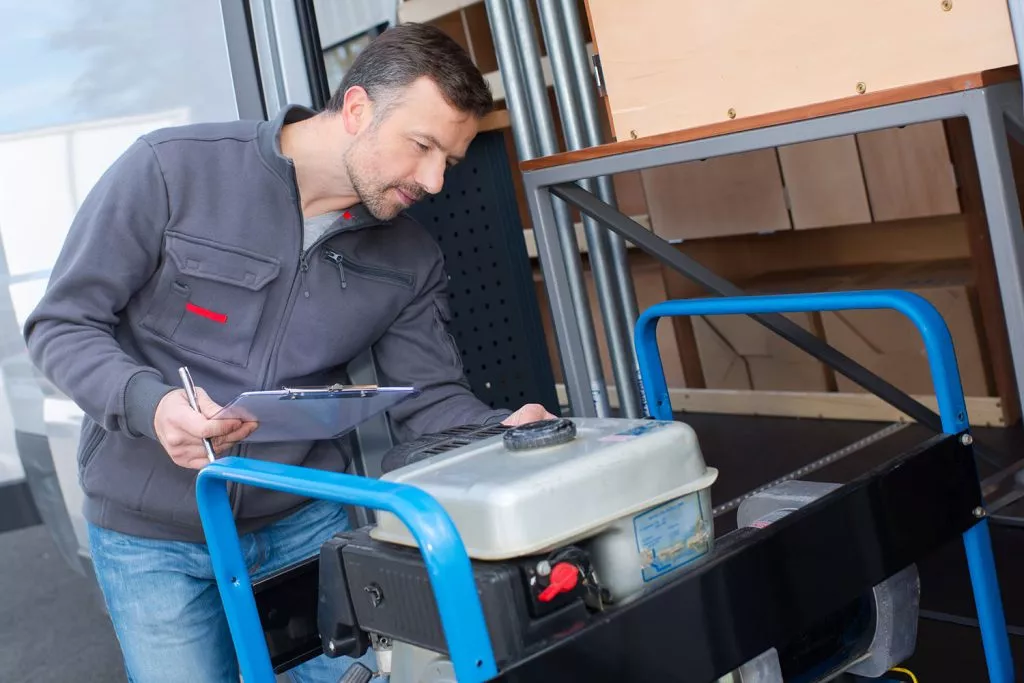
Choosing a portable generator that can be relied upon during power outages means considering both maintenance requirements and overall dependability. After all, you don’t want to invest in a unit that breaks down frequently or requires constant upkeep. That’s why it is worth taking into account how different types of generators stack up in terms of maintenance and reliability.
Here’s what our research has found:
Inverter Generators: Low Maintenance; High Reliability
Portable Generators: Medium Maintenance; Moderate Reliability
Standby Generators: High Maintenance; High Reliability
When it comes to balancing maintenance needs against durability over time, it turns out that inverter generators are often the best bet. They require minimal upkeep while still providing high levels of reliability. However, for those who prioritize absolute dependability over all else, standby units may be preferred despite their need for more frequent attention.
Transfer Switch Compatibility: Seamlessly Integrating Your Portable Generator With Your Home’s Electrical System
When it comes to selecting a trustworthy portable generator for powering your household during power outages or natural disasters, there are many considerations- but one should top off that list: ensuring compatibility with your homes electrical system via a reliable transfer switch.
These switches eliminate manual switching of lines between systems as well as prevent overloading of generators by detecting when main circuit connectivity has been lost due to outages – thus keeping up consistency across all circuits within reach of the backup source. Before making any purchase decisions regarding these pieces (generator/transfer) check their respective amperage ratings- these must match for compatibility to work an often overlooked detail.
An ideal choice would also be one that is UL listed and CSA certified further prioritizing safety as the top concern. Choosing a high quality transfer switch will save you time (and hassle) when you need to run your generator at full capacity- rest easy knowing you’re prepared should any emergency situations such as power outages arise.
Warranty And Customer Support: Securing A Reliable Backup Power Source With Strong After-Sales Service
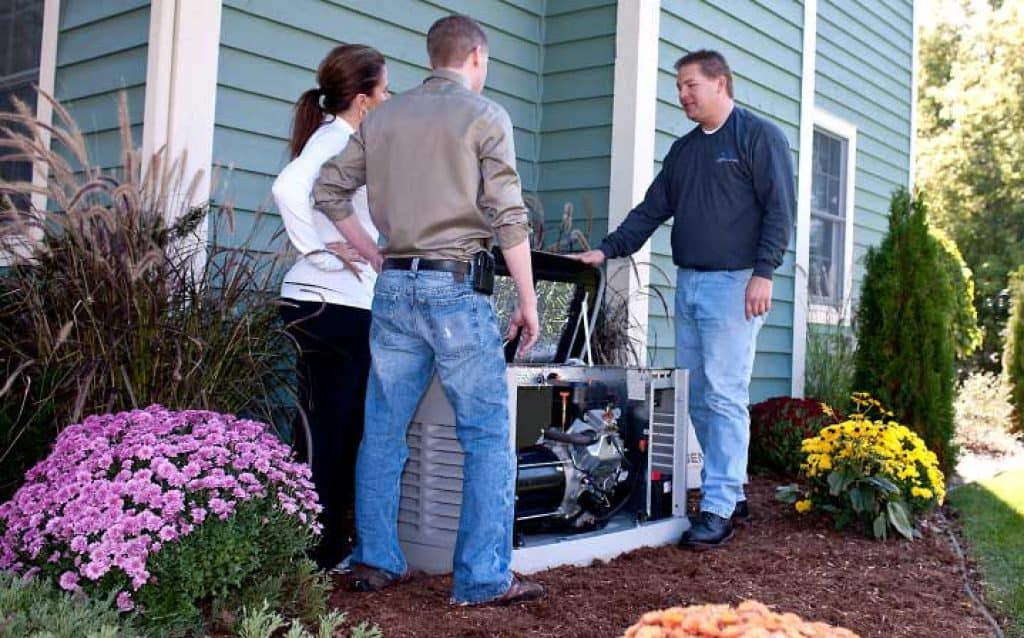
Homeowners looking to invest in portable generators as backup power supply during power outages, must weigh various factors when making their choices.
One critical determinant is the level of warranty offered by each manufacturer and customer support system available. An all-inclusive warranty can provide peace of mind for homeowners knowing that their generators are covered against potential defects or breakdowns while achieving maximum usage during power outages. Similarly important are post purchase services like technical support in case a malfunction occurs during an emergency situation.
It is vital to scrutinize the fine print of each warranty offer before making your final decision since some may restrict certain components’ coverage or have time limits for replacements and repairs. Also noteworthy is reading through user reviews from different brands/models on marketplaces like Amazon to determine which generator offers consistent performance through real life experiences shared by past customers based on individual usage needs over time.
Frequently Asked Questions
How Much Does A Reliable Portable Generator Cost?
When it comes time to purchase a portable generator budgeting is key – these units can cost thousands of dollars! Prices fluctuate based on numerous factors such as fuel type, wattage output and portability features.
Generally speaking though expect costs between $500-$3000 for most models with increased prices applying when powering large equipment like air conditioning units or running multiple household items simultaneously.
It is essential that before purchasing any specific model consumers take into account their unique energy requirements so they make an informed financial decision that will keep them covered during emergencies like power outages!
Are Portable Generators Safe To Use Indoors?
When dealing with portable generators within enclosed spaces, safety should be your number one priority.
Take heed of these guidelines to reduce risk factors: avoid running your power source within cramped areas as this could prompt hazardous levels of carbon monoxide accumulation; place your equipment on firm terrain away from combustible items with satisfactory airways for good measure; lastly, meticulously adhere to all manufacturers’ instructions while accurately grounding your unit prior to utilizing any outlets near you for any necessary tasks.
What Is The Average Run Time For A Portable Generator?
The decision between getting a smaller gasoline powered portable generator versus a larger diesel fueled one boils down to priorities – namely mobility versus longevity of use.
As a general rule smaller generators running on gasoline can function for around 8 10 hours when at half load; meanwhile their larger counterparts running on diesel can endure for up to an impressive 20+ hours of use.
Taking into account the unique demands of your situation is vital when selecting the optimal generator for calamities and power outages.
What Additional Accessories Are Needed For A Portable Generator?
As humans continue advancing technologically and learning more about our world we recognize the value in being prepared for unexpected situations – whether natural disasters or other emergencies like power outages. Even mild inconveniences like temporary power outages can cause significant disruption and inconvenience without the proper equipment on hand.
A portable generator is an ideal solution for powering necessary appliances during electricity outages – but there are several accessories you’ll need in order to safely and effectively use one.
Depending on how much wattage you need for your appliances an extension cord may be necessary for connecting everything together properly.
Additionally, if using your portable generator as a main source of power during outages or elsewhere around the house you will need a transfer switch kit installed to prevent back feed of electricity into the grid. Make sure that any attached batteries are charged regularly with appropriate battery charging equipment.
Lastly, fuel stabilizers should be used regularly to keep fuel from deteriorating over time while awaiting use during emergency situations like power outages.
Does A Portable Generator Require Professional Installation?
You don’t have to spend extra money on hiring an expert for installing your portable generator. Its quite simple and straightforward to do it yourself by carefully following some guidelines provided in the manual that accompanies your device.
Ensuring safety and effectiveness is crucial hence reading through thoroughly is imperative.
If you come across any issues during installation don’t hesitate in calling up your manufacturer for clarification.
Conclusion
Power outages can come with numerous challenges, hence, requiring backup options such as portable generators. This is why buying one is worth considering however it’s far from being an easy decision as many variables need weighing up including budget constraints coupled with features like runtime and accompanying accessories.
Fortunately, these concerns aside purchasing the right model shouldn’t pose too much of a challenge since most portables come designed with ease of use top-of-mind while avoiding necessary installation expenses by consumers.
And when safety precautions aren’t compromised, they’re perfectly safe when used indoors. In fact, it’s easy enough finding one that suits your needs best as long as you do thorough research and smart comparison-shopping.



